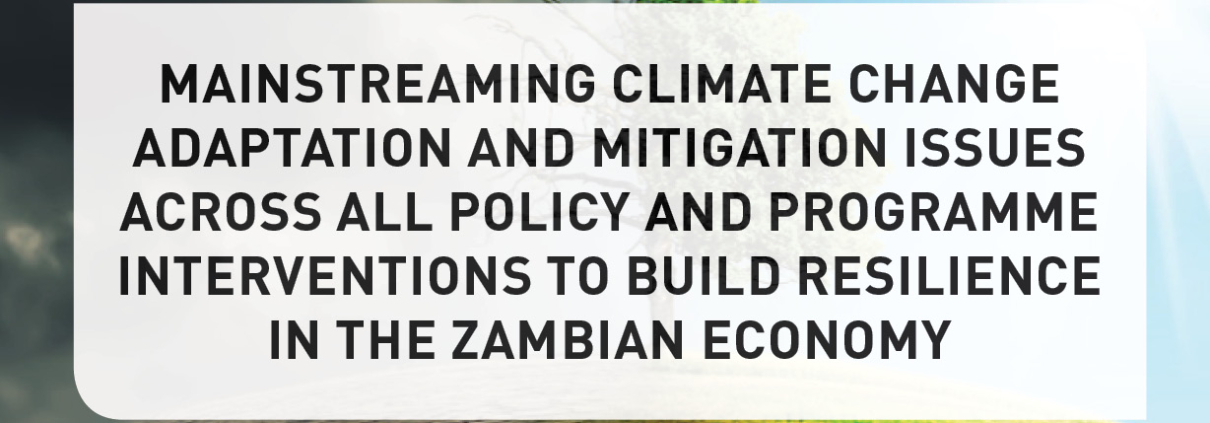Climate change continues to pose a significant challenge to Zambia’s economic recovery, having cost the country an estimated 0.4% (US$13.8 billion) in GDP growth between 2007 and 2016.
It is projected that over the next 10-20 years, losses in key sectors such as agriculturee, will reach approximately US$2.2-3.1 billion, largely due to waterlogged fields, water shortages, destruction of crops, and a high incidence of crop and livestock diseases. In the energy sector, poor rainfall during the 2015/2016 season led to a 600MW decline in the country’s hydropower generation. Other sectors that have been affected by climate change include; manufacturing, health and water.
In order to manage these effects, the Zambian Government through its National Policy on Climate Change, has started to mainstream adaptation and mitigation measures across all policy and programme interventions to re-build the resilience of the economy. However, there are various challenges to the effective implementation of the climate change policy due to the following;
Firstly, there is an inadequate capacity in the development of bankable climate change adaptation/mitigation proposals. Additionally, Zambia has very little proper and concise domestic financing to implement climate change related projects. Another challenge that is faced is the lack of strong partnerships between the Government and the private sector on climate change related projects. Moreover, there is a need for more extensive data collection on climate change impacts in Zambia, such as on biodiversity and ecological systems. Lastly, there needs to be greater emphasis placed on the publicising of climate change related issues to allow the general citizenry to prepare for climate change shocks. Practices such as the cutting of trees for charcoal making and mass land clearing for agriculture must be avoided or done with the utmost caution. However, this can only be achieved by increasing the common citizens awareness levels on the deleterious effects of these practices to the environment.
In order to address the challenges being faced in the implementation of the Climate Change Policy, Government through the Economic Recovery Programme (ERP) intends to enhance climate change mainstreaming across all policy and programme interventions to foster resilience in the Zambian economy. Particular attention will be directed to climate sensitive sectors such as agriculture, water and energy.
The ERP recommends the following if some of these challenges are to be addressed:
There is a need for a stronger commitment by Zambia to both short- and long-term projects that will enable adaptation/mitigation. It is recognized that this can be a very expensive exercise and thus, what tends to happen is that Government funding for climate related issues is usually restricted to merely being reactive (emergency response when floods or droughts occur for example). Additionally, it is imperative that stakeholder’s capacity is enhanced to allow for bankable project proposal development to enable a pipeline of project proposals for submission to multilateral climate funds. Furthermore, there is also a need to enhance domestic resource mobilization for the implementation of climate action: instruments that could be utilized as green bonds. Another recommendation is that Government is urged to establish and strengthen partnerships with the private sector in climate change programmes/projects; as well as promote private sector participation to enhance financing for climate action. Zambia also needs to further build capacity to produce climate change related data, as well as improve existing information systems to better collect data on climate change impacts on biodiversity, ecological systems, and green house gases emissions (GHG). Lastly, systems need to be put in place that effectively raise awareness on climate change, and its potential impacts on social and economic development, livelihoods and ecosystems.




